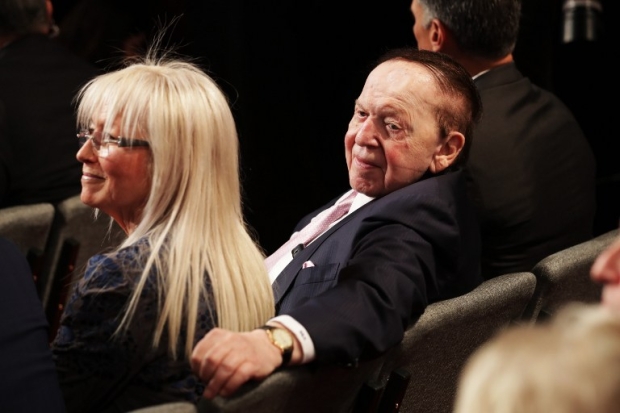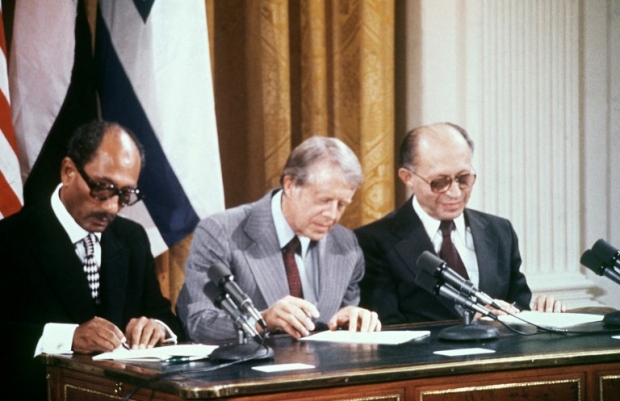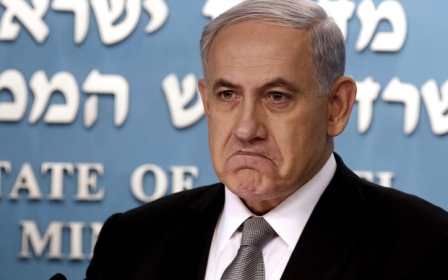The Trump threat to Israel’s security interests

Right-wing Israeli politicians, including Education Minister Naftali Bennett, see the victory of US Republican candidate Donald Trump as favourable toward Israel’s settlement enterprise in the West Bank, and thus, as favourable toward Israel.
Yet analysts who address Trump’s victory more broadly anticipate that his leadership will soon translate into both an increase in domestic tensions, and a change in the balance of power in the Middle East region.
And these consequences might prove detrimental to Israel’s long-term security interests.
READ: In Trump we trust: Israelis edge towards burying the two-state solution for good
In a post-election Wall Street Journal interview, President-elect Trump said that he will try to achieve a peace agreement between the state of Israel and the Palestinian leadership. Or, in his own words, “the ultimate deal”.
How Trump plans to do so remains a mystery – as much of how he plans to “make America great again”.
During the presidential campaign, Trump promised to accomplish a series of goals, including the one formulated in his campaign slogan. Nevertheless, until now, Trump has yet to clarify his strategy to accomplish them – assuming that he has one.
Two days after Adelson’s donation, Trump met with Israeli Prime Minister Benjamin Netanyahu and promised him that, if won the election, the US would “recognise Jerusalem as the undivided capital of the State of Israel”.
Furthermore, Trump has pledged to transfer the US embassy in Tel Aviv to Jerusalem, a move that defies international law.
This has, of course, led many to question Trump’s campaign promise “not be controlled by the donors, special interests and lobbyists who have corrupted our [US] politics and politicians for far too long”.
'Not an obstacle for peace'
Trump’s entourage has also expressed support for Israeli settlements in the West Bank, and argued that this historic obstacle to a potential peace agreement is actually not an obstacle at all.
'It is certainly not Mr Trump’s view that settlement activities should be condemned and that it is an obstacle for peace'
- Co-chairman of Trump campaign's Israel Advisory Committee
Most recently, Jason Greenblatt, co-chairman of the Trump campaign’s Israel Advisory Committee, told Israel’s Army Radio that “it is certainly not Mr Trump’s view that settlement activities should be condemned and that it is an obstacle for peace, because it is not an obstacle for peace”.
This open invitation to settlement expansion in the West Bank was followed by a domestic push to retroactively legalise settlements built on private Palestinian land. This right-wing move which contradicts international law, has even concerned Netanyahu, a firm defender of the current status quo.
As tensions escalate, so do the chances of another Palestinian uprising and more terrorist attacks, a situation that threatens Israel’s domestic security.
Invested interests?
Following Trump’s victory, the Israeli Foreign Ministry distributed a document titled “The Trump Administration - Preliminary Comments”. The document in question, which was written by the ministry’s Centre for Political Research, offers a preliminary assessment of Trump’s foreign policy in the Middle East region.
According to Haaretz, which had exclusive access to the document, the authors estimate that Trump will reduce US involvement in the region.
'The US has a role to play in maintaining a balance of power in which Israel can thrive and survive. Without that balance, it’s a more dangerous region'
- Bruce Maddy-Weitzman, Tel Aviv University
“As part of his minimal interest in foreign affairs, Trump does not see the Middle East as a good investment,” the document states, “and it is reasonable to assume he will seek to reduce American involvement in the region, alongside his commitment to maintaining the struggle against the Islamic State and the momentum created in the battle for the cities of Mosul in Iraq and Raqqa in Syria, which will continue to get his administration’s support.”
Many analysts have argued that the decreased US involvement expected under the Trump administration will negatively affect the regional balance of power, a phenomena that is not in line with Israel’s regional security interests.
READ: How Trump won: The rise of America's false prophet
Among these analysts is Bruce Maddy-Weitzman, a specialist on Middle East politics at Tel Aviv University’s Dayan Center.
“If the US is not involved [in the Middle East region], the balance of power will be affected negatively. The strengthening of Russian influence and the efforts by Iran and Turkey to project power are not in Israel’s interests," he recently told the Jerusalem Post.
“The US has a role to play in maintaining a balance of power in which Israel can thrive and survive. Without that balance, it’s [the Middle East] a more dangerous region.”
Throwing off the balance
Historically, US foreign policy in the Middle East has been interventionist and both Democratic and Republican leaders have attempted to secure US interests in the region, as well as those of its allies, including Israel.
Also, the US has aimed to guarantee regional stability by maintaining a specific balance of power, assuming the role of foreign hegemonic actor in the Middle East.
Consequently, the US will not continue to be the only foreign actor that controls the Middle Eastern balance of power, leaving a power vacuum that will increase Russian influence in the region in favour of its allies, including Iran and the Syrian regime of Bashar al-Assad, both foes of Israel.
This situation will generate further regional instability, threatening Israel’s long-term regional security interests, particularly in the north, where Hezbollah still constitutes a matter of serious concern.
New natural allies
Unsurprisingly, in a recent interview with Portugal's RTP state television, Assad defined Trump as “a natural ally” if the president-elect fulfils his campaign promise “to fight the terrorists,” referring to the militants of the self-proclaimed Islamic State.
This change of US strategy in the region will send the following message to US former allies: 'You are on your own'
In a March interview with The New York Times, Trump said that he thought “the approach of fighting Assad and ISIL simultaneously was madness, and idiocy”.
“They’re fighting each other, and yet we’re fighting both of them. (…) I think that our far bigger problem than Assad is ISIS, I’ve always felt that. (…) You can’t be fighting two people that are fighting each other, and fighting them together. You have to pick one or the other,” he added, signaling that he would target the terrorist group.
This change of US strategy in the region will send the following message to US former allies: “You are on your own,” and might lead to an arms race with disastrous consequences for both Israel and the rest of the region.
- Tania Ildefonso Ocampos is a Spanish political analyst who specialises in EU strategy in the Middle East. She is a former Schuman trainee (Euro-Med and Middle East Unit of the European Parliament's Directorate-General for External Policies), and holds an MA in Middle Eastern History from Tel Aviv University, Israel.
The views expressed in this article belong to the author and do not necessarily reflect the editorial policy of Middle East Eye.
Photo: Israeli Prime Minister Benjamin Netanyahu and Donald Trump speak in September 2016 during a meeting in New York (Reuters)
This article is available in French on Middle East Eye French edition.
New MEE newsletter: Jerusalem Dispatch
Sign up to get the latest insights and analysis on Israel-Palestine, alongside Turkey Unpacked and other MEE newsletters
Middle East Eye delivers independent and unrivalled coverage and analysis of the Middle East, North Africa and beyond. To learn more about republishing this content and the associated fees, please fill out this form. More about MEE can be found here.








